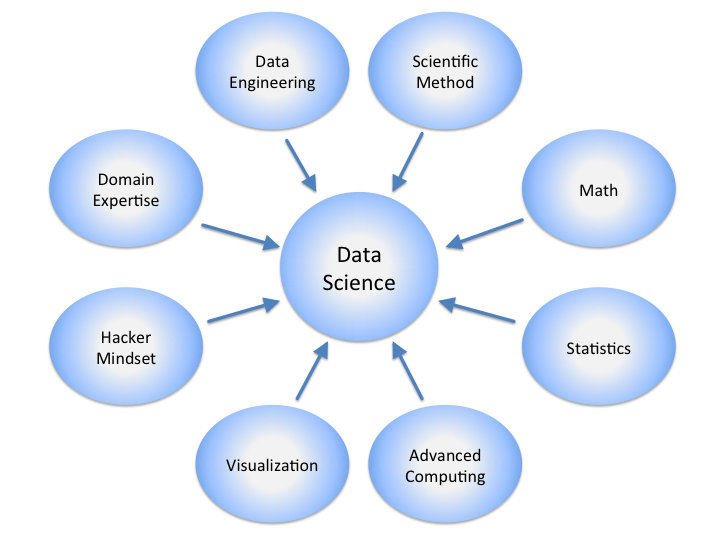Introduction
The data is all around us. It’s everywhere. within our gadgets, our conversations, and more crucially. It’s in the way companies make their decisions in the present. Due to the increasing importance of data, two careers are gaining a lot of attention: Data engineering vs data science . Knowing the main differentiators between Data Engineering and Data Science. It will help you determine the career path that is most compatible with your ambitions and goals.

What is Data Engineering?
It is a fundamental element of the ecosystem for data. It involves the design and administration of infrastructure and systems to allow data to move efficiently. Data engineers design pipelines that gather, store and analyze data, making data ready to be analyzed. This job focuses on the design of databases, assuring data integrity and maximizing maximizing data storage options. They utilizeutilize technologies like Hadoop, Spark, and SQL databases in order to make sure data is easily accessible and safe.
Data engineering, in essence, is the process of creating “roads” that allow data to flow from one location to the next. Without data engineers, work and data scientists are challenging. If not unattainable, since the information would or could be inaccurate, unreliable or inaccessible.
What is Data Science?
Data scientists work with the information created by data engineers and employ diverse methods of analysis. Information such as statistical models, machine-learning algorithms as well as data visualization tools, to identify patterns and patterns. The goal of their work is to give practical insights to assist businesses to make better choices.
Data scientists are proficient in working with programming languages such as Python, R, and SQL. They can also use tools such as Tensor Flow , Scikit-learn, and Tableau to study large data sets and build models that can forecast future trends.
The Core Differences Between Data Engineering and Data Science
On a broad level, there is a fundamental distinction between the two fields lies in the character of their respective work.
Focus Area:
- Data Engineering: focuses on the architecture, infrastructure as well as technology used to are used to store and manage data.
- Data Science is the process of studying data and drawing insight from it using statistics and machine learning methods.
Skill Set:
- Data Engineers should know how to program databases, cloud computing as well as systems design.
- Data Scientists need to be knowledgeable in machine learning statistical analysis, visualization of data, as well as programming.
Tools and Technologies:
- Data Engineers commonly work with software such as Apache Hadoop, Apache Kafka, SQL, and cloud-based options such as AWS or Azure.
- Data Scientists generally make use of Python, R, Jupyter notebooks, machine-learning frameworks. Frameworks (like TensorFlow and PyTorch) as well as visualization tools such as Tableau or Power BI.
End Goal:
- Data Engineers aim to build structures that make it easier to collect data as well as storage and access.
- Data Scientists are tasked with generating data and developing models to help in the process of making decisions.

The Overlap Between Data Engineering and Data Science
Although the roles of both have distinct roles, they’re very compatible. Data scientists and data engineers typically work in tandem within an organization organization. Data engineers make sure that the infrastructure for data is properly set up, while the data scientist makes use of the infrastructure to analyzeanalyze and access data. Without an efficient data infrastructure, the data science field would be a solitary endeavour. Without trained data scientists, all the data which data engineers have worked so long to collect and analyzeanalyze could be of nothing of value.
Furthermore, the boundaries between data engineering and science are starting to become blurred. Due to the advancement of technology and tools, certain jobs are evolving into hybrids and incorporating elements of the fields of data engineering as well as data science.
Why You Should Care About the Difference
The distinction between the two fields will allow you to take informed decision-making when thinking about working in the area of data. Data engineers work on creating and maintaining structures that store data, while data scientists analyze, analyze and extract insights from data. Knowing these roles can assist you in determining the skills you’ll need to learn based on your preferences and goals for your career.
I Remember When I First Considered Data Engineering vs. Data Science
As I was first thinking about diving into the field of data, I was not sure what direction I should take. The field of data science enticed me because of the issue-solving element. I was keen to gain valuable insights from the raw data that could directly contribute to business decisions.
My Experience with Data Science Side
When I began to learn the basics of data science, I found myself exploring machine learning algorithms and predictive models. However, there were instances when I’d be unable to complete a task due to the fact that my data was not structured or pristine enough. It was then that I began to realizerealize how much I was dependent on the work of the data engineers. Without reliable data pipelines, everything else related to the field of data science was in the midst of a battle.
The Changing Nature of Data Roles
What I’ve observed over time is that the boundaries between the fields of data engineering and data science are becoming blurred. Today, many data scientists must have an excellent grasp of the fundamentals of data engineering. In particular, when dealing with massive datasets, it is common for me to design or update pipelines of data on my own. The skills I have acquired have enabled me to become more independent and to solve issues faster.
Data Engineering vs. Data Science: Career Outlook
The need for Data engineers and data scientists is steadily growing. Based on the U.S.-Bureau-of-Labor-Statistics, the employment of data-related jobs is expected to increase by 35% between 2021 and 2031. This surpasses the overall average for all professions.
- Data Engineers: By 2023, the wage for a data engineer within the United States will be around $110,000 each year. Senior-level data engineers earn more than $140,000 a year.
- Data scientists: Data scientists can earn an average of $120,000 annually. There are professionals with years of Experience earning upwards of $150,000 a year. It is possible to earn a higher salary based on location, industry and level of Experience.
The huge demand for both positions ensures that people in each sector can look forward to a bright future with plenty of career possibilities.
I See Data Engineering as the Backbone
Data engineering is the foundation of every business that relies on data. Without the appropriate infrastructure that is in place, any efforts in data science are useless. Since I have been involved in both, I am able to say data engineering has the potential to be an under-appreciated hero. The systems that they design and maintain are the basis that allows data science to flourish. This realization has led me to realize the significance of data engineering even more than I had previously thought.
Why You Might Want to Pursue Data Science
If you are interested in problem-solving or statistical analysis and making raw data insights which drive business decisions, the field of data science could be the ideal path for your career. I’ve always loved uncovering patterns and making forecasts, so data science seemed like a perfect match for me. However, I have to admit that the best occasions come when I depend on the data infrastructure to be reliable and seamless and seamless, which is possible by the hard work of the data engineers.

Conclusion: Which Path Should You Choose?
Data engineering, as well as data science, can provide lucrative and satisfying job opportunities, but your choice ultimately comes down to the areas of interest you’re interested in. If you’re interested in working on databases, designing systems and ensuring that data flows seamlessly, then data engineering could be a good option for you. If you’re more interested in analyzing analyzing data, creating predictive models and finding undiscovered insights, then Data science may be a better option.
Both professions require a thorough knowledge of data. However, they demand different sets of skills as well as other work duties. It’s good to know that even as the need for skilled data specialists is increasing There’s ample room for data engineers as well as data scientists to flourish within the constantly growing data industry.
Whatever path you take, know that jobs in the field of data offer great prospects for growth, high-paying pay, and the chance to contribute meaningfully to society and businesses.
FAQS
1. What’s the major differentiator between the two fields of data engineering and data science?
Data engineering involves maintaining systems and building that are used to store, process and transfer information. Data scientists, on the other hand, study this data to discover insight, create predictive models, and assist in their decision-making. Although both jobs work on data, they play distinct roles in the ecosystem of data.
2. Do data engineers have to be knowledgeable about how to use data science?
Although data engineers do not need to be experts in the field of data science but having Experience with the fundamentals of data science could be beneficial, particularly for roles requiring data in the modern world. Being aware of the way data scientists interact with information can help data engineers construct a more efficient infrastructure. The primary goal of data engineers is the architecture of the system and its data pipelines.
3. What are the skills required by an engineer of data?
Data engineers must be skilled in languages, such as Python, Java, and Scala, in addition to having previous Experience in databases (SQL, NoSQL). Additionally, they should have expertise in modelling data cloud platforms (AWS, Azure, Google Cloud) as well as big data applications like Hadoop as well as Apache Spark. In addition, the ability to build data pipelines as well as optimizing optimizing data storage is vital.
4. What qualifications are needed for data scientists?
Data scientists must be skilled in programming languages for instance, Python and R as well as statistical analysis and machine learning strategies. Additionally, they use software such as TensorFlow, Keras, and Scikit-learn to build models. Tools for data visualization visualization, such as Tableau and Power BI, along with excellent problem-solving skills, can be crucial in understanding and making data accessible.
5. Does a data scientist have the potential to turn into an engineer in data?
Data scientists are able to move into the role of a data engineer. However, it is a process of learning new abilities, specifically with regard to the creation of an infrastructure of data. Data scientists who are proficient in cloud services, databases and management of data pipelines are able to transition into the field of data engineering. The transition requires shifting focus from analysis towards infrastructure.
6. Which profession has better chances of a job: data engineer or data scientist?
Both of these fields offer excellent opportunities for advancement, especially as the demand for skilled data specialists is expected to continue to increase. Based on the U.S.-Bureau-of-Labor-Statistics jobs related to data are predicted to increase by 35% between 2021 through 2031. Data science, however, often is a preferred choice for applicants because it focuses on analysis and making decisions that could lead to increased competition. Data engineering, although equally crucial, is often in an increased need in the area of the infrastructure and solutions for big data.
7. What is the average salary that researchers and data engineers make?
The salaries for both positions are highly competitive for both roles. Data engineers make around $110,000 per year in the U.S., with senior data engineers earning upwards of $140,000. Data scientists usually earn equivalent or slightly higher amounts in the range of $120,000 annually, while experts in the field can make over $150,000 per year. Salary levels can differ based on the location, industry and level of Experience.
8. Are data engineers able to work with data scientists?
Yes, data engineers may be independent. They’re accountable for establishing and maintaining the data storage and management systems. Handle the data. Each role is interdependent, although data engineers may work without data scientists in specific environments.
9. is it possible to specialize in both the fields of data engineering as well as data science?
It is possible to become a specialist in both in particular with the ever-growing crossover between both areas. A lot of companies now seek experts who are able to handle data engineering and jobs in data science, also known informally as “full-stack” data scientists or data engineers. This type of hybrid job requires a combination of different skills, which include data infrastructure, programming as well as machine learning.
10. Which has the most immediate impact on decisions in business, which is Data sciences or engineering?
Data science has an impact more directly on business-related decisions since it is a method of analyzing data for insights to make predictions and guide strategies. However, data engineering serves an essential role in supporting the business by making sure that the infrastructure for data is stable and reliable, which is crucial for an accurate analysis of data. In the end, both are essential. However, data scientists generally are more involved in decisions.
